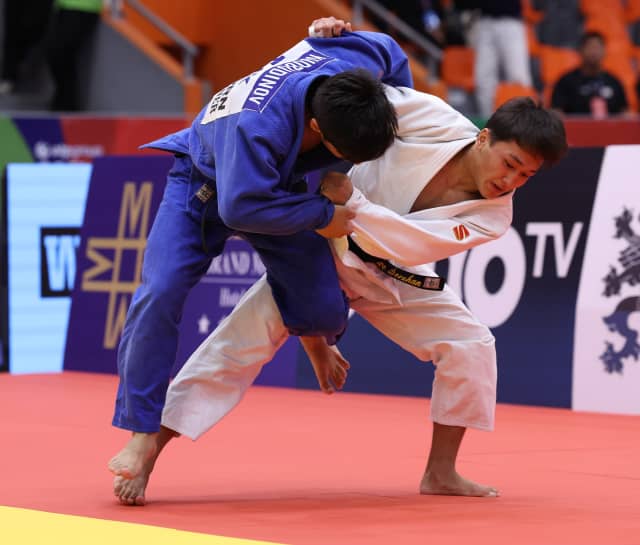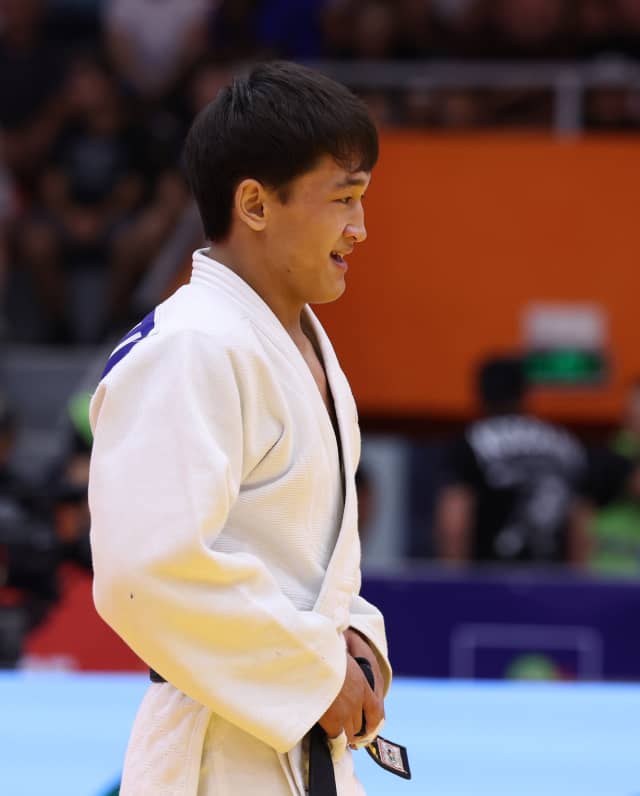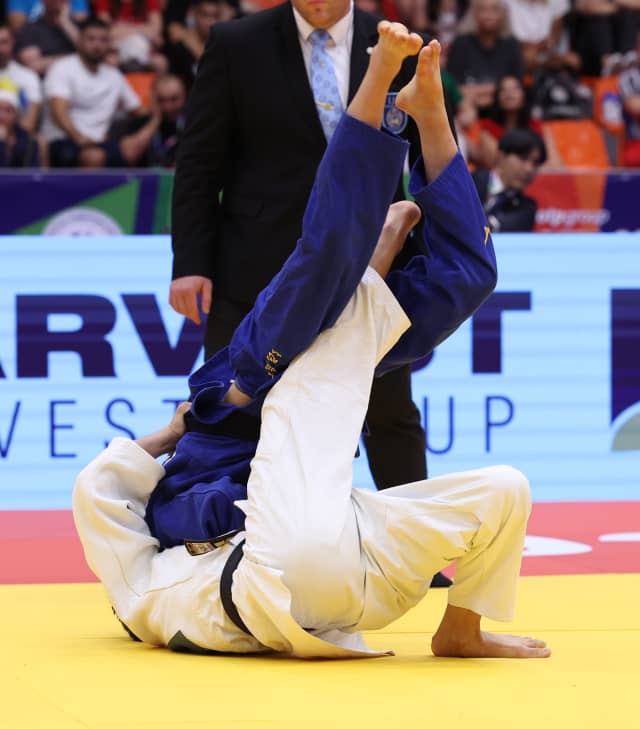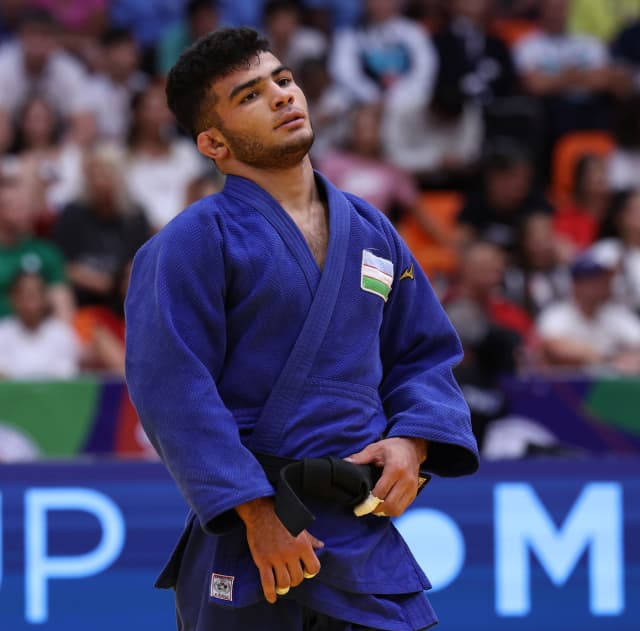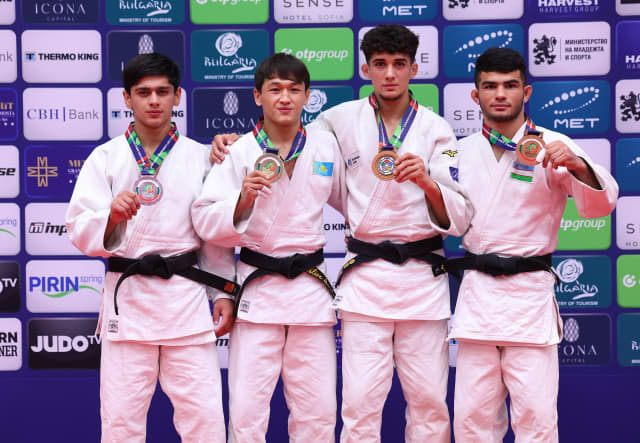On the other half of the draw, the story was equally compelling. Having dispatched one of the seeded players, Mohamed Amine Degouah (ALG), Tajikistan’s Loiq Kudbudinov advanced to the semi-finals, where he met one of the day’s big talking points, Toai Hashima (JPN). As we had hinted on the eve of the competition, the Japanese cadets were to be watched carefully. Rarely competing outside Japan at this level, they arrive on the international circuit shrouded in mystery. Hashima wasted no time in unveiling a judo style steeped in the purest Japanese tradition, dynamic, technical and precise.
However, his semi-final began in the worst possible way. Almost immediately he found himself trailing, as Kudbudinov racked up a waza-ari and two yuko scores, while Hashima managed only a single yuko in return. Despite the relentless pressure he applied, the Japanese youngster could not make up the deficit.
At the end of these gripping semi-finals, the final line-up was set: Yernur Batyrgali (KAZ) versus Loiq Kudbudinov (TJK). It proved to be a contest of high intensity, ultimately decided by two opportunistic yuko scores from Batyrgali, both registered from perfectly timed ko-uchi-gari throws. It was gold for Kazakhstan!
The first bronze medal contest saw Zeyd Alasgarov (AZE) take on Toai Hashima (JPN). In a surprise result, Hashima was caught by a sumi-gaeshi and Alasgarov could celebrate joyfully as he left the tatami with a world bronze medal.
The second contest for a place on the podium was an all-Uzbek affair, with Mukhammadkarim Nosirov (UZB) squaring off against Dilshod Karimov (UZB). It was a fitting close to a day of high-level judo and numerous surprises. In golden score, Karimov found the decisive waza-ari to secure the medal.


